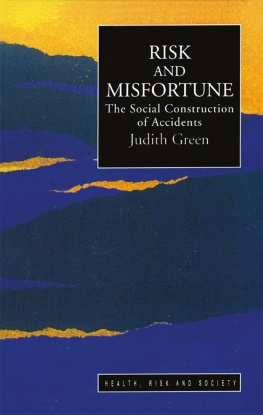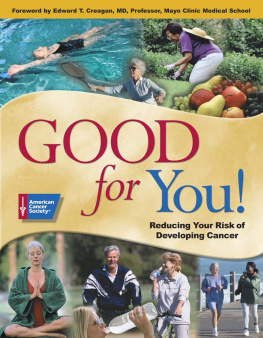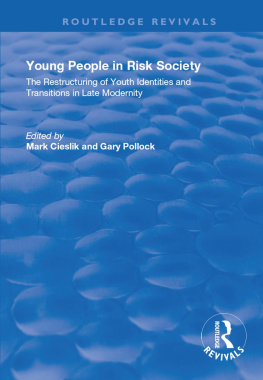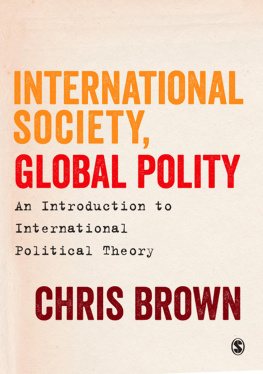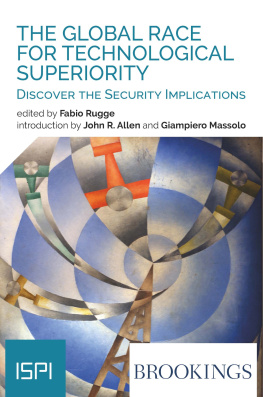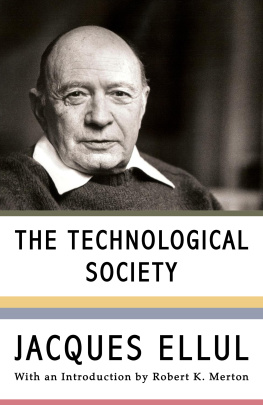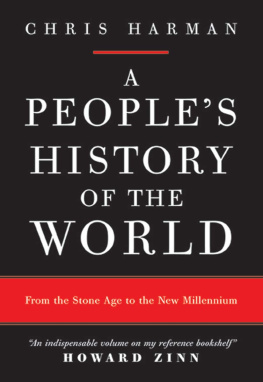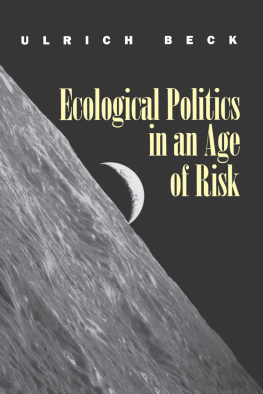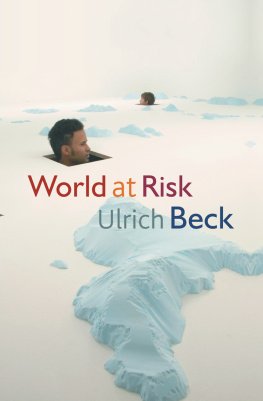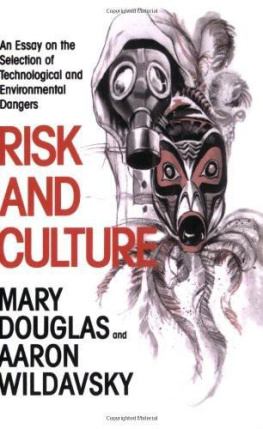First published 1982 by Westview Press
Published 2018 by Routledge
52 Vanderbilt Avenue, New York, NY 10017
2 Park Square, Milton Park, Abingdon, Oxon OX14 4RN
Routledge is an imprint of the Taylor & Francis Group, an informa business
Copyright 1982 by the American Association for the Advancement of Science
All rights reserved. No part of this book may be reprinted or reproduced or utilised in any form or by any electronic, mechanical, or other means, now known or hereafter invented, including photocopying and recording, or in any information storage or retrieval system, without permission in writing from the publishers.
Notice:
Product or corporate names may be trademarks or registered trademarks, and are used only for identification and explanation without intent to infringe.
Library of Congress Cataloging in Publication Data
Main entry under title:
Risk in the technological society.
(AAAS selected symposium; 65)
"Based on a symposium which was held at the 1980 AAAS National Annual
Meeting in San Francisco, California, January 3-8."
Includes index.
1. Technology assessment--Congresses. 2. Risk--Congresses. I. Hohenemser,
Christoph. II. Kasperson, Jeanne X. III. American Association for the
Advancement of Science. IV. Series.
T174.5.R57 303.4'83 81-14745
ISBN 0-86531-316-4 AACR2
ISBN 13: 978-0-367-28612-5 (hbk)
About the Book
In this book, representatives of government, industry, universities, and public interest groups consider the emerging art of risk assessment and discuss the issues and problems involved. They look at two failures in technological risk managementThree Mile Island and Love Canal; examine the dimensions of technological risk; tackle the difficult question of how safe is "safe enough"; and offer a set of research priorities.
About the Series
The AAAS Selected Symposia Series was begun in 1977 to provide a means for more permanently recording and more widely disseminating some of the valuable material which is discussed at the AAAS Annual National Meetings. The volumes in this Series are based on symposia held at the Meetings which address topics of current and continuing significance, both within and among the sciences, and in the areas in which science and technology impact on public policy. The Series format is designed to provide for rapid dissemination of information, so the papers are not typeset but are reproduced directly from the camera-copy submitted by the authors. The papers are organized and edited by the symposium arrangers who then become the editors of the various volumes. Most papers published in this Series are original contributions which have not been previously published, although in some cases additional papers from other sources have been added by an editor to provide a more comprehensive view of a particular topic. Symposia may be reports of new research or reviews of established work, particularly work of an interdisciplinary nature, since the AAAS Annual Meetings typically embrace the full range of the sciences and their societal implications.
WILLIAM D. CAREY
Executive Officer
American Association for
the Advancement of Science
Christoph Hohenemser is professor of physics and cofounder and chairman of the Program on Science, Technology and Society at Clark University. An experimental physicist working in magnetism and materials science, he has been active in hazard management and risk analysis for seven years, and he has written on nuclear power policy, arms control, and. transportation risks. He is coeditor of Technological Hazard Management (with R.W. Kates; Oelgeschlager, Gunn & Hain, forthcoming).
Jeanne X. Kasperson is a research librarian at the Center for Technology, Environment and Development at Clark University. She is the author of articles on the accident at Three Mile Island and is coeditor of Water Re-Use and the Cities (with R.E. Kasperson; University Press of New England, 1977).
Joseph F. Coates is president of J.F. Coates, Inc., a policy analysis consulting firm in Washington, D.C. A chemist by training, his major current interest is planning for the future, with emphasis on the impact of technology on society. He is a former assistant to the director of the Office of Technology Assessment of the U.S. Congress and program manager for technology assessment at the National Science Foundation.
Vincent T. Covello , program manager in risk analysis at the National Science Foundation, is a specialist in policy analysis, technology assessment, risk analysis, and evaluation research. He has published on the evaluation of federal research and development programs and on the use of research in policy decision-making.
Paul F. Deisler, Jr ., a chemical engineer by training, has spent most of his career in various research and operating positions within the Shell Oil Company. He is now Shell Oil Company's Vice President for Health, Safety and Environment.
Lois R. Ember , a specialist in environmental science and health , is an associate editor for Chemical & Engineering News. Her writing has earned her awards from the Society of Technical Communication and the National Association of Recycling Industries.
Baruch Fischhoff , a research associate at Decision Research (a branch of Perceptronics, Inc.) in Eugene, Oregon, has specialized in risk analysis and decision-making arid judgment under uncertainty. He has written numerous articles on risk perception, surveying of public values on technology management, and on the quality of scientific judgment, and he is the author of Acceptable Risk (with S. Lichtenstein, P. Slovic, S. Derby and R. Keeney; Cambridge University Press, 1981).
Gio Batta Gori , a microbiologist by training, is vice president of the Franklin Institute and director of the Institute's Policy Analysis Center. A former deputy direator of the Division of Cancer Cause and Prevention at the National Cancer Institute, he has initiated studies on occupational and nutritional cancer, smoking and disease, and related regulatory policies. He currently directs a program to provide independent evaluation of health hazards and the costs/benefits of federal regulatory policy.
Stanley M. Gorinson was chief counsel of the President's Commission on the Accident at Three Mile Island and is presently Chief, Special Regulated Industries Section, U.S. Department of Justice, Antitrust Division. He has written reports on the Three Mile Island nuclear reactor accident; the U.S. Nuclear Regulatory Commission; the role of the managing utility and its suppliers; and on emergency preparedness .
Roger E. Kasperson , professor of geography and government and director of the Center for Technology, Environment and Development, Clark University, is a specialist in risk assessment, workplace hazards, nuclear power policy issues, and radioactive waste management . He edited Equity Issues and Radioactive Waste Management (with R. Kates; Oelgeschlager, Gunn & Hain, forthcoming) and Water Re-Use and the Cities (with J. Kasperson; University Press of New England, 1977).




